How Real Estate Closings Actually Work in North Carolina (Without the Confusion)

If the phrase “real estate closing” makes your palms sweat or your eyes glaze over, don’t worry—you’re not alone. Many buyers, sellers, and even new agents feel completely in the dark when it comes to what happens between signing a contract and getting the keys.
At Thomas & Webber, we’ve handled thousands of residential closings across North Carolina. We know the process inside and out—and we also know it doesn’t have to feel like a mystery. So let’s break it down.
What Is a Real Estate Closing (Really)?
In North Carolina, “closing” and “settlement” aren’t the same thing.
-
Settlement is when you sit down and sign all your documents.
-
Closing is when all the funds are in, the deed is recorded, and keys are officially transferred.
You can settle on a Tuesday and not officially close until Wednesday. Don’t assume you’re done just because you’ve signed!
Major Milestones in the Closing Process
Here’s what happens from contract to closing.
1. Going Under Contract
Once your offer is accepted:
-
You agree on price and any deposits (due diligence and earnest money)
-
You lock in key dates: due diligence deadline and settlement date
Pro tip: Add them to your calendar—seriously. You don’t want to miss them.
2. Due Diligence Period
This is your investigation window. You’ll:
-
Order inspections (home, radon, septic, etc.)
-
Review CC&Rs or HOA rules
-
Evaluate the property’s condition
Your attorney will also:
-
Conduct a title search
-
Flag any title issues the seller must fix
Even if due diligence ends, the seller is still responsible for clearing title defects.
3. Loan and Legal Work Behind the Scenes
While you’re inspecting, your attorney is:
-
Coordinating with your lender
-
Ordering HOA documents and payoffs
-
Preparing closing disclosures
-
Resolving any title issues
Meanwhile, your lender is finalizing underwriting. Timing matters—both pieces need to be done before closing.
4. Signing Day (Settlement)
Buyers sign a hefty loan package, usually 50–100 pages. Bring a valid photo ID.
Sellers sign a much smaller stack including the deed and lien waivers.
Ask questions. Understand what you’re signing and when your payments start.
5. Title Update and Recording
Before recording the deed, your attorney:
-
Performs a final title update
-
Confirms all funds are received
-
Submits the deed for recording with the county
Only after recording:
-
Buyers get the keys
-
Sellers and agents get paid
-
Funds can be disbursed
What About Keys and Funds?
Keys aren’t guaranteed at the signing table. Unless the seller has agreed to give you access early (in writing), you won’t get the keys until the deed is recorded.
Same with money—don’t make big plans for proceeds until you know the closing is final.
Plan for Back-to-Back Closings?
If you’re selling one home and buying another, talk to your closing attorney early. Timing is critical when funds need to move quickly between transactions.
Final Thoughts: Closings Don’t Have to Be Scary
The closing process is structured. Once you understand the flow, it’s much easier to stay calm, ask good questions, and make informed decisions.
And if you’re buying or selling in North Carolina—especially around the Lake Norman area—we’d love to walk you through the process ourselves.
👉 Send your contract to [email protected]
or learn more at thomasandwebber.com/closings


